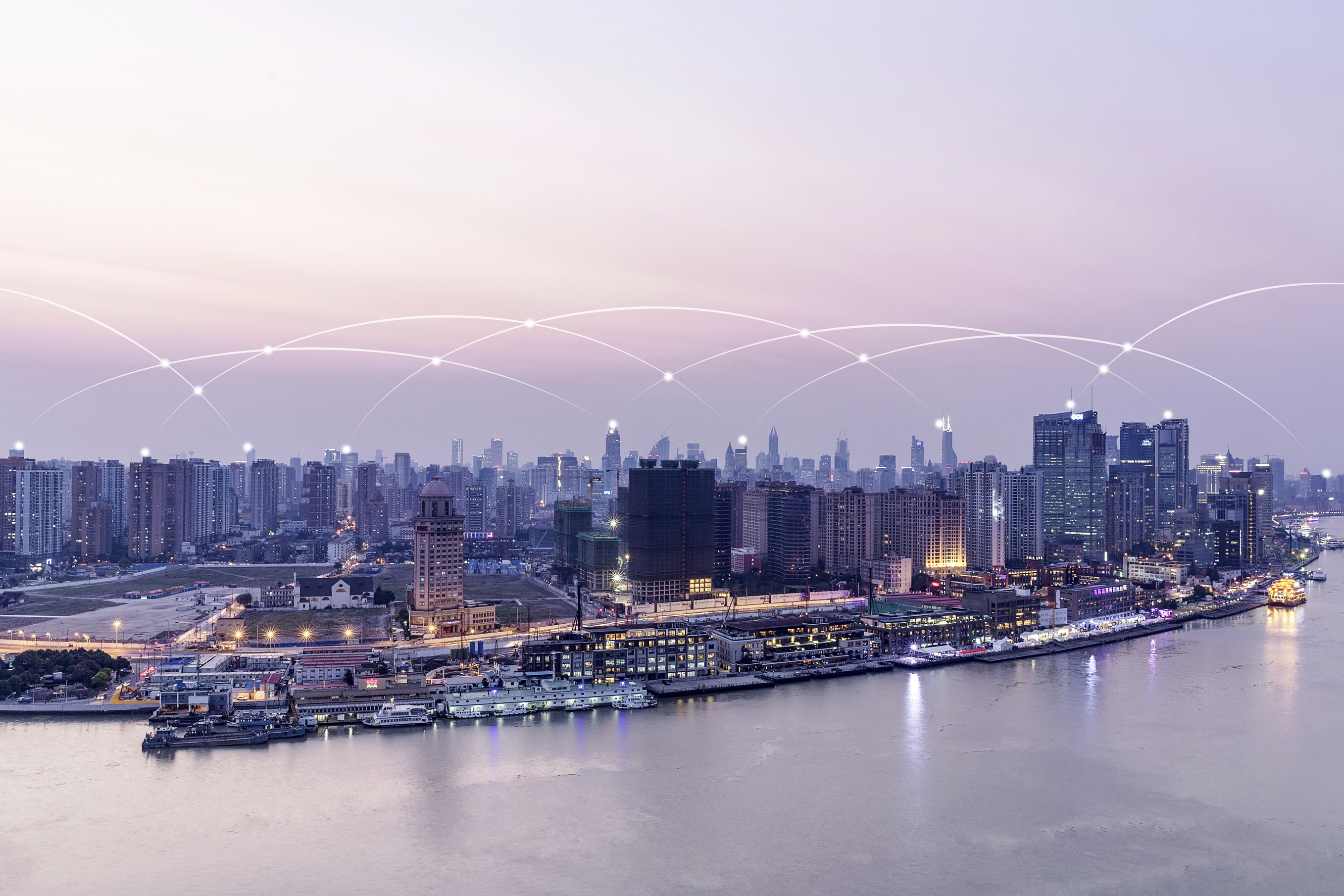
In recent years smart cities have been touted as the sustainable solution to a multitude of issues stemming from urbanisation, such as over-population, traffic congestion, pollution and climate change. Governments around the world are looking to improve inner-city living through the use of technology to not only reduce the impact of growing populations, but also revolutionise the infrastructure and services of communities.
Developing a smart city is not easy, and whilst these initiatives have moved forward in the wake of technological advancements, there is still work to be done before their benefits can become fully realised. According to research from IHS Technology, there will be at least 88 smart cities all over the world by 2025. So, it’s more important than ever to address the obstacles holding back innovation.
Investing in the future
In the UK, more public services are privatised than in any other European country, and implementing smart technology which is interoperable across various public-sector suppliers can prove extremely challenging. On top of this, Brexit has caused financial insecurity as many UK smart city projects were funded by the European Union (EU), and the future of this funding has become uncertain as the UK prepares to leave the EU.
Despite these challenges, the UK still faces the global problems of rapid urban population growth, climate change, pollution and traffic congestion. In fact, congestion in London, caused by a range of issues from lack of space to people searching for parking, is costing the city £6 billion a year.
These are all issues which require new and innovative solutions to manage them and reduce the impact for future generations. So, how can cities make sure that they are not getting left behind when it comes to innovation, whilst ensuring cost-effectiveness and efficiency?
Joining the dots
One of the reasons why smart cities are yet to live up to their full potential is because some city councils tend to work with one provider that offers numerous solutions, rather than multiple suppliers who truly specialise in individual issues. Whilst dealing with just one supplier might make the smart city project seem easier to manage, in reality it can leave the community susceptible to internal problems as the provider isn’t a specialist in each facet of the smart city. This, in turn, drives up costs and reduces the effectiveness of solutions.
Many cities are finding that that in their haste to become a smart city, they are using one provider to put in place a technological infrastructure first, only to realise that they have not fully realised the problems and needs they are trying to address in the first place.
Manchester is one example of a UK city which is taking the right approach. As part of its CityVerve smart cities initiative, Manchester City Council has opted to seek proposals from multiple providers for smart city pilot projects. What’s more, each technology provider must address one of three key areas, including mobile city services platforms; homelessness; and city sensing. Every proposal is required to address the findings of the City Centre Review published by the council, which identified a number of potential improvements to the delivery of public services. By taking this approach, the council are able to focus on creating smart city solutions that address real needs in their society, as well as ensuring that each provider is specialised in the issues they are tackling.
Cutting costs
Associated costs can prove a significant barrier to smart city adoption. In the wake of the recent worldwide recession, many cities have seen their tax revenues decrease substantially, with little recovery. Considering that Barcelona’s smart city upgrades cost its taxpayers $230 million every year, smart city solutions may seem like they are not within the realm of possibility for many cities.
However, if you balance this with the fact that traffic congestion alone is projected to cost the UK economy £300 billion by 2030, it puts the upgrades into perspective. Whilst initial investments may seem high, the cost-savings in the long-term can be significant. This is especially true if cities are focusing on solving specific challenges they face, rather than implementing various solutions - without a real need for them - because they want to become a smart city.
In the case of alleviating congestion in cities, studies show that the average motorist wastes over 2,500 hours of their life searching for a parking space, representing a huge challenge holding back not only people, but cities too. In fact, 30% of traffic in congested cities is caused by drivers searching for a parking spot, and the problem contributes to as much as 50 million tons of pollution across Europe.
Real-time parking solutions can provide a foundation for tackling these issues. Through its ability to cut the time people spend searching for parking in half, the technology does not just hold the potential to improve a city’s traffic flow but also to limit petrol consumption and reduce carbon emissions in cities by hundreds of thousands of tonnes.
These solutions are not just about introducing new technologies either. A valuable by-product of predictive parking solutions is that the data they collect can be used for further insights into peoples’ needs. For example, data we gather using our predictive parking solution, Find & Pay, can also be used to understand the number of people looking for parking at any given time, and the areas they are searching in. This information can then help predict traffic trends in cities, ensure that infrastructure systems are running efficiently and flag any areas for concern. By collecting this kind of specialised data, governments can inform future policies and identify need gaps.
The way forward
Whilst cities are making steps in the right direction to ensure the sustainability of their infrastructure for growing populations, they must be aware of the potential obstacles on the road ahead. The current approach of deploying one provider to tackle a range of issues can lead to inefficiencies and soaring costs, as it is challenging for a single provider to focus on all of the issues facing complex city environments. By working with numerous providers to solve specific issues facing smart cities, governments can ensure that they are operating at optimum efficiency. What’s more, when used correctly, the resulting data can be used to inform policies, such as those relating to traffic and parking, on a wider scale.
About EasyPark Group.png)
Since 2001, our award-winning smart services have been helping drivers to find and pay for parking in close to 600 cities in 11 countries. But what we do doesn’t stop there. On a larger scale, our technology helps businesses, operators, and cities with parking administration, planning and management. What we actually do is make urban life easier – one parking spot at a time. Visit www.easyparkgroup.com to learn more!
For more information or to set up an interview, please contact:
Matthew Tooth, Public Relations Manager, EasyPark Group
matthew.tooth@easyparkgroup.com
+46732678166



